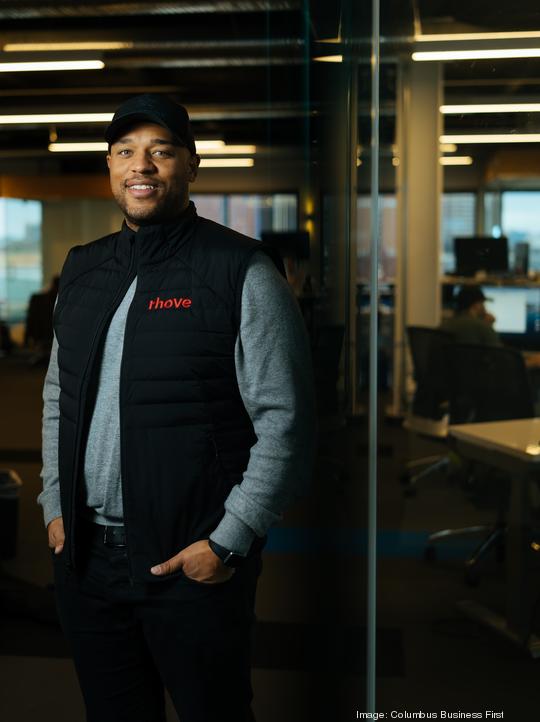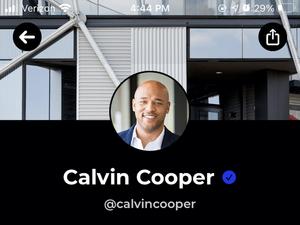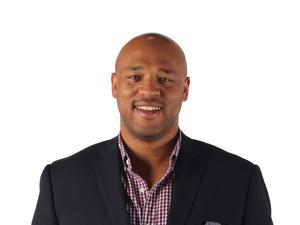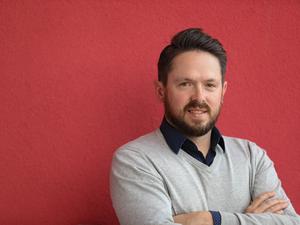
Anyone regardless of income now can own a piece of a German Village Airbnb.
Rhove, the "Robinhood of real estate," has gone live – and posted the first investment circulars for fractional real estate ownership at $1 a share. The startup aims for a portfolio of $40 million owned by everyday investors.
Until now, developers raised financing from investors certified as having high incomes or net worth – so you had to be wealthy to access a stable way to generate wealth. Even the few crowdfunding options typically require a minimum $10,000.
"These are properties that generate income," Rhove co-founder and CEO Calvin Cooper said. "It’s one of the least accessible ways to create wealth.
"The solution is to give the options to everyday people," Cooper said. "They have a choice to own a piece of the building they live in."
Rhove, the DBA of Roost Enterprises Inc., was qualified to start selling shares in May by the U.S. Securities and Exchange Commission, but stuck with a test group before rolling out widely this month. It took months longer than expected to get the SEC qualification, as the agency kept seeking more edits to offering materials.
"It hadn’t been done before," Cooper said. "You have to be obsessed with solving the problem."
Now that the regulatory wrangling is done, subsequent offerings can roll out more quickly, Cooper said. Properties will include large and small residential as well as office and other commercial buildings.
The first properties are 571 City Park Ave., which is a more than century-old brick four-unit apartment building, and a large apartment complex in Illinois.
City Park is owned and managed by Housepitality LLC, a 14-person Columbus-based real estate investment firm that's the largest operator of short-term rentals in Ohio. The upper units are listed on Airbnb, while the lower units have long-term leases.
"(Rhove) removes so many of the barriers for so many of my friends who want to invest in a short-term rental or a property but don’t have the downpayment, don’t have the credit or whatever those barriers are," said Housepitality CEO Benjamin Vail. "This is a way for them to get involved. They can not only financially benefit from the returns but feel a part of it."
Rhove's model is to raise capital from users on their platform to invest in a property – for City Park this could range from 11% to 54% ownership depending on the amount of capital raised. In return, investors receive their fraction of the potential ongoing income from rental profits or capital gains if the property sells.
"Real estate, it’s one of the best investment vehicles since the beginning of investing – and it’s a stable investment," said Vail, who started as a real estate broker. "It’s not Bitcoin; it doesn’t go up and down 10%, 20% a month."
Cooper started Rhove four years ago with co-founders Jon Slemp, Scott Sumi and Jonathan Nutt. Seed investors for an undisclosed amount include Columbus-based Drive Capital LLC and Kaufman Development founder Brett Kaufman.
Rhove tested its concept with an app in which landlords would match tenant savings toward rent, starting at Kaufman’s Gravity development in Franklinton. But the main goal was selling equity stakes.
"You see cranes go up all over the city, but it’s getting harder and harder to own real estate itself," he said. "It's absurd we can't be invested here."
One of Columbus Inno's "Startups to Watch" for this year, Rhove has grown to 12 employees. Thousands of users have downloaded the app and created profiles, waiting for their chance to invest. The company is not spending anything on advertising at the moment.
Cooper said he understands concerns about investors buying up property, but stopping development or adopting rent control don't solve the problem. Cities with the most restrictions have the highest costs, he said, like New York.
"You either have disinvestment or investment – and disinvestment is much worse," Cooper said. "Then you have slumlords because it’s not profitable to invest.
"I believe the community should be able to participate in that development."
Vail said he works "tirelessly" to fight the perception of short-term rentals harming a neighborhood, and welcomes the idea of those neighbors owning part of the business.
With Rhove lowering barriers, Cooper said, eventually neighborhood groups could come together to buy entire buildings in their community.
"Buy a property and make it affordable; then this is about empowerment," Cooper said. "That's why our app is social. ... We want to give people the tools to not just tweet about it, but do something about it."







